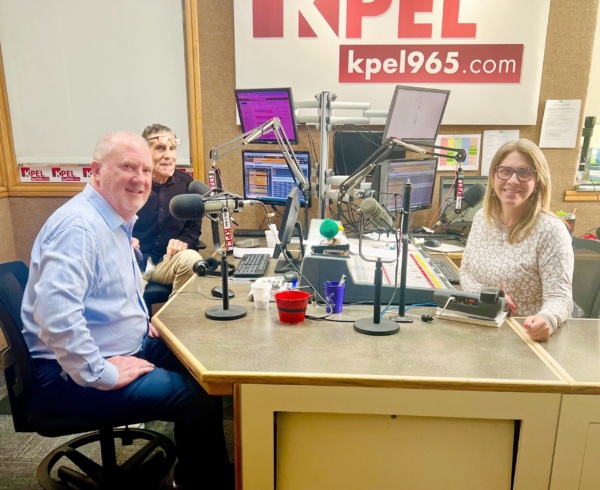The reasons buyers may want to purchase owner’s title insurance may surprise you!
The question surrounding whether or not a buyer should purchase title insurance is often up for discussion among buyers, real estate agents, and their closing attorney. From a title attorney’s perspective, owner’s title insurance is something you don’t know you need, until you absolutely need it – just like homeowner’s insurance or life insurance. The bottom line is that people in the chain of title are dishonest, may provide incomplete or insufficient information, or they are basing their information on their best guess. Let’s dive into some examples of when an owner’s title policy would save the buyers from extensive litigation and attorney’s fees.
1) The Wrong Mr. Smith – Mr. Smith passed away and owned numerous properties throughout the parish. Unbeknownst to the realtors and title companies, Mr. Smith’s identical twin had gotten a hold of his driver’s license and was selling all of his property and forging the Cash Sales before Mr. Smith’s succession could be opened and completed – you know the requisite step in order to sell property after someone passes away in Louisiana. Thankfully, most of the purchasers had bought an owner’s title insurance policy that protected against forged deeds (what we call the cash sale) and they were covered under the policy in this instance.
2) Yes, I am single! – Mr. Bachelor was the seller on property in our office. Our pre-closer asked all the preliminary questions required for the file in order to sell property including, “What is your martial status?” Mr. Bachelor’s answer was, of course, “single!” The individual had bought the property with a martial status of “single” as well which was reflected in the public record. A few weeks after the closing, the closing attorney happened upon a divorce decree that had been filed in this individual’s name. Being highly unlikely that he had gotten married and divorced in a matter of weeks, the closing attorney asked Mr. Bachelor whether or not he was married. He responded, “Well yes I was married in the early 80s, but we have not been together for 30 years.” In Mr. Bachelor’s mind he was “single,” but for purposes of Louisiana property law, any property purchased in Louisiana was community property with his ex as long as they were still legally married. The buyer’s purchase of an owner’s title policy would have included coverage for any issue involving improper marital status and any claims brought by the ex asserting her interest in the property.
3) The Brady Bunch siblings sell their family home– The 6 Brady Bunch siblings are co-owners of their parents’ home where they grew up. There was no will for Mr. and Mrs. Brady who died holding hands in the nursing home (very Notebook of them), so in Louisiana, all the children are considered co-owners once the succession has been completed, and there is a Judgment of Possession placing each heir in possession of the property. Peter was overseas serving in the military and disappeared. The Army sent a certified letter presuming his death, and a judge ruled that he was in fact presumed dead. So the remaining 5 Brady heirs proceeded to sell the family home and collect their 1/5 portion of the sale proceeds. Lo and behold, Peter returned to the family home to find a new owner residing there. Luckily, the buyers had an owner’s title insurance policy. When Peter demanded his share of the proceeds as a legal heir, the title company was able to navigate it with their policy coverage and reach resolution for all without extra time and expense spent by the buyers.
4) Power of Attorney Pitfalls – Mr. Bud was selling a property that was part of he and his wife’s community property. He came to the closing with a signed and notarized power of attorney that authorized Mr. Bud to sign on behalf of his wife. The buyers were explained the reasons for an owner’s title insurance policy during closing, but decided to waive the policy that would have cost $815 (a $160,000.00 piece of property). Two years later, the seller’s wife sued the buyer claiming her interest in the property. As it turns out, the power of attorney was a forged document and the notary public was in on the fraud. The buyer couple spent nearly $20,000 to hire an attorney to defend their interest – all of which could have been covered for $815. As a general practice, we strongly dissuade the use of a power of attorney if the parties are available and competent to sign – even if that means we arrange a mobile notary to travel to the signing party.
A lender will always require a lender’s title policy, but this only covers the lender for any monetary loss due to a title problem. An owner’s title policy will cover the buyer for as long as they own the property. It is a ONE time premium and is relatively inexpensive as compared to other types of insurance. A title attorney reviews the public record in great detail, but there are certain defects that they are unable to see upon reviewing the chain of title – like those mentioned above! It is also estimated that 25% of the time, a title attorney will find a defect that needs to be resolved before closing and can take care of that – oftentimes without the buyer even knowing it was resolved. However, there are many unknown defects that cannot be gleamed from the face of the documents that transfer ownership over the last 30 years, and this is where an owner’s title policy can really save you time and money.
See you at the closing table!
Anne Elise Doise
Attorney At Law
337-235-0047







